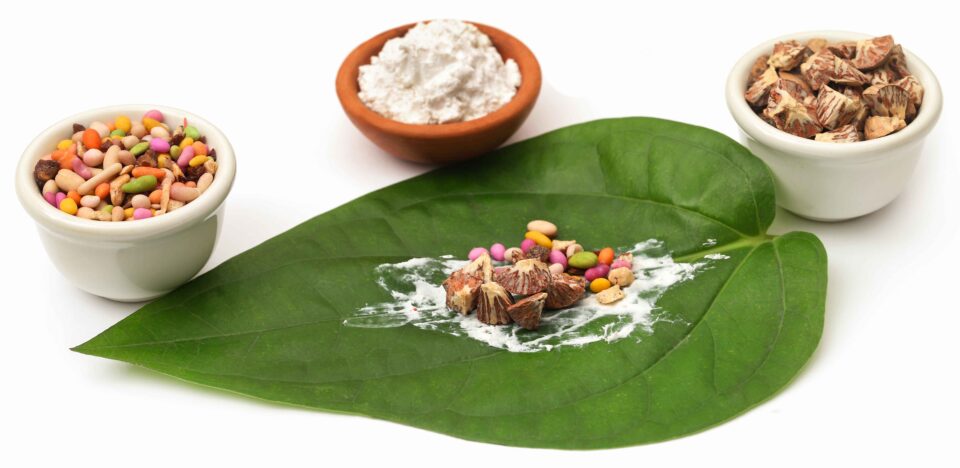Chewing tambul or pan, also known as betel leaves, is an ancient Indian custom. Ayurveda, the traditional Indian system of medicine, recognizes the benefits of this practice for maintaining oral hygiene, and good taste and preventing oral and throat diseases. However, the addition of tobacco and other harmful ingredients can negate these benefits and cause negative health effects.
The Ayurvedic Method of Chewing Betel Leaves
Fact: Ayurveda recognizes betel leaves as a pungent, laxative, and digestive, and notes that when taken along with slaked lime, areca nut, and catechu, they can relieve all three doshas or bodily energies.
The Benefits of Pan Chewing
Fact: Betel leaves offer medicinal and healing health benefits, including improved oral hygiene, increased blood circulation, and digestion. They also contain vitamins, minerals, and antioxidants, and are known to be effective in treating systemic and oral diseases.
The Controversy of Chewing Betel Leaves
Fact: Chewing betel leaves along with ingredients mentioned in Ayurvedic classics is safe and beneficial for health. However, excessive use of betel leaves and the addition of tobacco and other harmful ingredients can be dangerous and cause negative health effects such as tooth decay and cancer. It is important to use betel leaves in moderation and avoid adding harmful ingredients.
It is important to note that while the practice of chewing betel leaves is safe and healthy, it is important to avoid adding harmful substances such as tobacco to the mix. Tobacco is a known carcinogen and has been linked to various forms of cancer, particularly oral cancer. In fact, the World Health Organization has classified smokeless tobacco products, such as those used in pan chewing, as a Group 1 carcinogen, meaning it is a known cause of cancer in humans.
Furthermore, excessive use of betel leaves with tobacco can also have negative effects on health. Long-term use can lead to oral submucous fibrosis, a condition characterized by thickening and stiffening of the cheeks and mouth, making it difficult to open the mouth or move the tongue. This condition can also lead to oral cancer.
Despite these potential negative effects, the benefits of betel leaf chewing can still be enjoyed by practicing it in moderation and avoiding the addition of harmful substances. Chewing betel leaves with natural ingredients such as slaked lime, areca nut, and catechu, as recommended by Ayurveda, can provide various health benefits such as improved digestion, oral hygiene, and even weight loss.
Additionally, betel leaf has been used in Ayurvedic medicine for centuries to treat a wide range of conditions, including ulcers, blisters, headaches, and even certain forms of cancer. The leaves contain various vitamins and minerals, as well as antioxidants, which can help boost overall health.
In conclusion, tambul or pan chewing is an ancient Indian custom that has been proven to provide various health benefits. However, it is important to practice it in moderation and avoid the addition of harmful substances such as tobacco. By following the traditional Ayurvedic method of using natural ingredients such as slaked lime, areca nut, and catechu, the benefits of betel leaf chewing can be enjoyed safely and effectively.

